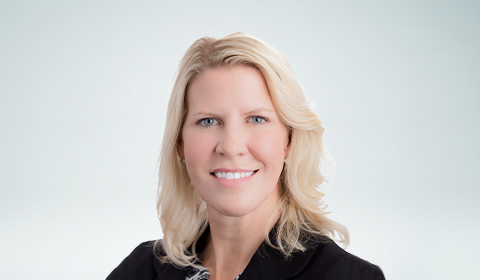With the arrival of SARS-CoV-2, insurance medical directors found themselves in a position of unparalleled influence within the life and health insurance industry.
That was the chief finding of RGA’s 2021 Checking the Pulse Survey, the first effort to gauge changing perceptions of these physician-leaders in the pandemic era.
The survey draws on responses from 124 medical directors representing 84 companies across multiple markets. It reveals how a global public health crisis and intense competitive pressure are reshaping the insurance medical director role. Life and health insurers face increasingly complex underwriting and claims case management challenges, leading medical directors to develop new skill sets to help meet these demands and provide more strategic support.
Insurance medical directors are increasingly valued as authoritative voices of evidence-based science and are instrumental in integrating medical advances into insurance risk assessment. More than half of survey respondents said their responsibilities and influence grew as insurers sought to understand the impacts of COVID-19 and to resolve any identified vulnerabilities. Almost one-fifth noted being more actively consulted for non-medical strategic, operational, and managerial advice, and about one-third reported being regularly involved in product development activities. Also, medical directors are increasingly expected to supply data and research to brief and advise executive leadership. The survey also reveals that the number of participating medical directors who are expected to develop medical issue briefings rose 15 percentage points after the COVID-19 outbreak.
Calling Dr. Strategist
Those medical directors occupying global roles saw the greatest demand for strategic expertise. These physicians reported being called upon more frequently to evaluate insurtech partnership opportunities and innovations, such as evaluating artificial intelligence/data models, exploring digital health data applications, and analyzing wellness programs and rules engines. Directors also became more heavily involved in risk management activities, including product development, medicolegal consultations, training, and auditing. Perhaps most tellingly, more of these directors took on medical research, pandemic impact assessment, and strategic development leadership roles.
In a sense, this reframing of the medical director as a strategist has been a long time coming. The industry confronts a growing tension between the need to digitize and to adequately manage risk. Three of every five medical directors reported greater emphasis by insurers on making competitive underwriting decisions and a concurrent shift in underwriting philosophy to support acceleration. More than 70% of survey participants reported increased use of e-underwriting and data analytics, and 64% observed a greater focus on transparency in presenting evidence-based decisions.
Yet, directors in the survey also indicated that obstacles to progress are growing: Half of respondents cited increased legal and regulatory challenges, and 63% noted more frequent challenges to claims decisions. Increasingly complex claims practices are exacerbated by more complex product definitions, according to 56% of respondents.
Developing Deep Expertise
Medical directors have unique skills that can be applied to negotiating these tensions. The survey revealed that more than 70% of medical directors already have assumed expansive technical responsibilities within insurance companies, ranging from case reviews and guideline creation to training, research and development, and regulatory input. Medical directors’ professional qualifications and experience levels run deep and span clinical and industry roles, with 88% of those surveyed having been active in the medical profession for a decade or more. More than half also had at least 10 years of life and health insurance industry experience. In addition, a large proportion of insurers require medical directors to maintain an active medical license, and 32% of responding directors actively practice medicine as clinicians or in another capacity.
More than 90% maintain generalist or specialty board certifications, and survey respondents reported a wide variety of specialties beyond insurance medicine, from cardiology and emergency medicine to psychiatry, neurology, and pulmonology. Notably, 15% also conduct clinical and laboratory research.
Overcoming Barriers
Demand for such expertise seems likely to grow. A majority (67%) of survey respondents foresee greater reliance on reinsurer medical departments, with 72% expecting increased need for evidence-based research to inform product designs, underwriting rules development, and claims decisions. Other future areas of support include medical cases (66%), pandemic research and best practices (65%), and underwriting development (63%).
Even as RGA’s survey reveals expanding responsibilities and influence for medical directors, obstacles persist. Almost a quarter of respondents observed that automation and artificial intelligence had noticeably influenced the insurance medical director role over the past five years, and half said gaining data and analytics skills would be key to future professional growth. Yet, medical directors also identified a lack of access to information and technologies such as automated underwriting engines, and 50% shared that their employers were underinvesting in training and development.
The survey underscored the potential for future staffing strains. With retirement looming for 18% of respondents, knowledge and skill transfer have never been more urgent, particularly in Europe, the Middle East and Africa, and in the Americas, where higher rates of planned retirement were reported. At the same time, early-career medical directors appear to be seeking greater variety and more diverse opportunities: 43% shared interest in a change of role, with the highest concentration among those with less than 15 years of experience in the industry. Such findings suggest that insurers choosing to invest in professional development may gain an advantage in an increasingly competitive market for these highly skilled professionals.







